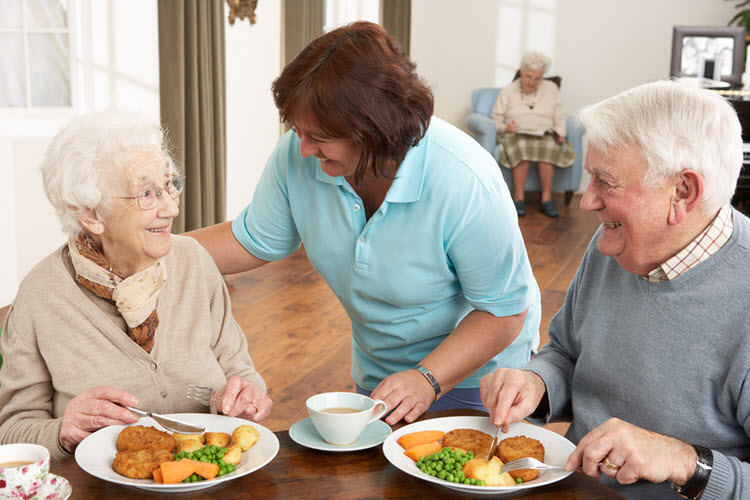Do you know what help is available?
It wasn’t until my father’s release from the hospital that I had any idea how many community resources are available to help our aging parents. (Jump to Lessons Learned)
If I could do it over again, I would have done research on community resources when dad’s heath first started to fail. We were in such crisis mode when he got out of the hospital that it was overwhelming. Researching and taking advantage of community resources beyond the Visiting Nurse Association was last on our priority list.
I honestly don’t know if dad would have been open to help before he became so seriously ill. He defined himself as protector and caregiver for our family and saying yes to help was difficult for him. Prior to his CHF (Congestive Heart Failure) turn for the worst, we talked in general about getting him help, but he always said he was fine. After he died, people told me how they would see him at Shop Rite on a bench resting, because he did not have the strength to walk the entire store at one time. I wish I had known. And I hope that he would have accepted help from family, friends and community resources when he realized his health was declining.
- Don’t wait for an emergency to start exploring resources in your parent’s local community. Every state and county has a division of Aging Services. These are funded out of the Administration on Aging to carry out the provisions of the Older Americans Act of 1965 (OAA). The OAA promotes the well-being of older individuals by providing services and programs designed to help them live independently in their homes and communities. The Act also empowers the federal government to distribute funds to the states for supportive services for individuals over the age of 60. (Source: Administration on Aging)
- Do a google search on Aging and Elder Services in your state. This will lead you to local Agencies on Aging. Typical programs are: Transportation (rides need to be scheduled ahead of time and cost is minimal); Home-delivered Meals; Senior Activities; Case Management; SHIP (Senior Health Insurance Programs); Pharmaceutical Assistance to the Aged and Disabled (PAAD)
- These programs have income limits, so understanding your parent’s financial situation is important. If they have income above the threshold (typically very low), you will need to look at alternate private resources.
- You will be asked questions about your parents physical and mental well-being in order to match services with need. This can be difficult if your parents are hiding issues, a very common problem.
- Please note: If your parents need to take advantage of municipal or volunteer ride services, those drivers are not generally allowed to help seniors get down the stairs and out of their homes. Navigating stairs alone, especially in bad weather, can be a challenge and very scary. There are things to put in place now to make it safer for you parents to leave their home: improved lighting; a second banister on stairwells; even physical therapy will help them be more confident on stairs. For more thoughts on how to keep your parents safe at home click here: (Keeping Parents Safe at Home Without Huge Expense)
- An excellent comprehensive description of essential resources for seniors and their caregivers can be found at the Eldercare Directory. In addition, this site links you to services by state. (Source: Eldercare Directory of Essential Resources).
- Other resources:
- Community Based Resource Descriptions: Elder Issues: Description of Community Based Resources
- Community Services for the elderly and how to pay for them: Family Practice Notebook: Description of Community Resources
- Eldercare Locator: Eldercare Resource Locator
- 12 Resources Every Caregiver Should Know About: AARP: List of 12 Caregiver Resources
Disclaimer: The material in this blog is for educational purposes only. It is not intended to replace, nor does it replace, consulting with a physician, lawyer, accountant, financial planner or other qualified professional.

